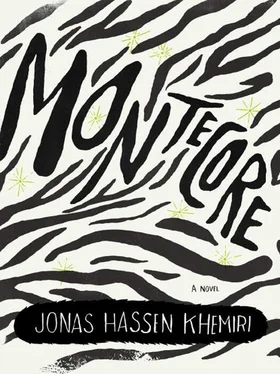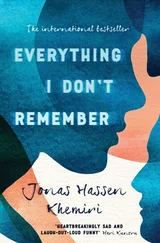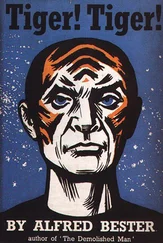To read now, eight years later, how you describe him as a “damn unforgiveable betrayer” makes me more than sorrowful. Fathers and sons must share their time, not separate it! I have great understanding for the magnitude of your conflict. But will your relationship never be renovated? Your father is still your father; he may have constructed occasional mistakes in life. But who hasn’t? Unfortunately, I recognize the character of your father’s pride — it makes certain things impossible (and to contact a son with an apology is one of those things).
You wonder suspiciously what I will get out of helping you (“like what’s in it for you”). Let me respond by describing my usual day: I authorize a small hotel in Tabarka. I am fifty-four years old. I have a saved economy that will securitize my pension. I have no family. I do, on the other hand, have a passport that is not welcomed without a visa in particularly many tempting countries. Thus my workday follows the patterns of tradition: I awake, I place my body at the reception desk, I take keys, I direct some tourists to viewpoints, I point the cleaning lady to newly left rooms. But mostly I sit still and surf the global world net. I download humorous Japanese commercials, read about J-Lo and Paris Hilton in American sensation journals, watch The Worst of Jerry Springer , localize gratuitous facts. (Incidentally, do you know the global record in banana eating? Only twenty-three.) So I have great quantities of superfluous time, which I will gladly sacrify in order to reafflict the sphere of Swedish and correspond you your father’s history. I owe him that. At least.
Your directive about the book’s need for “a super-obvious dramatic curve” has influenced me in the preparation of the attached document. I propose that the chestnut theme can be the common thread with which the episodes in your father’s life are woven together. I also agree that certain people’s need for anonymity could be damaged if we employ their real names. So let us call the book “fiction” and modify certain names. What shall we name your father? In order to prophesy his future relocation to Sweden, I propose the symbolic name “Abbas.” Then we can write: “Thus my father’s name bore similarity to the Swedish pop group that would heap the dance floors of the seventies with hits like ‘Dancing Queen’ and ‘Bang-a-Boomerang.’ Was this a coincidence, or a sign of fate? We’ll tend toward that later …” We could also call him Hammah. Or Bilal. Or maybe Robert, after his idols Robert Frank and Robert Capa?
Attached you will find the truth about your father. Do not be shocked by the surprise.
Your stable friend,
Kadir
PS: I radiate you positive thoughts and intersect my fingers in anticipation of the coming day of publication. Good luck!
PS2: I assume that we will continuize our relationship in Swedish? Your naïvely crooked Arabic is probably not serviceable to us in the forming of a book …?
During the spring of 1965, your father’s nightly wakings continued. The difference was that he could now scream both himself and the rest of us to awakeness. Some nights I spied on his body where it lay wet from perspiration with wide-open eyes. When dawn approached, he located himself by the window and gazed out over the yard. One night I padded my steps toward your father where he sat curled up in the window with his shoulders vibrating up and down. His crying sounds had a low volume and in his hand he cradled his beloved chestnut.
“How is your health feeling, honestly?” I whispered with a brother’s caring. Abbas quickly dried his tears and tried to return to normalcy.
“Very well. Thank you for asking.”
“But then why are you pursued by such repeated nightmares?”
Your father looked down at his chestnut and said:
“Can you guard a secret that you may not describe to anyone?”
“I promise.”
“On all your existing honor for all time?”
“I promise.”
“I have not been entirely honest about my history …”
“How so?” (And I must admit that here I felt that type of pleasure that can be stirred when suspicions are verified.) “Isn’t it your father in that photograph?”
“Yes, it’s him. And he is Algerian. But … he doesn’t share his company with Elvis and Paul Newman. Do you know who is sitting beside him?”
“No.”
“It is Maurice Challe and Paul Delouvrier.”
“Wow!”
“Do you know who they are?”
“Uh … no. Who are they?”
Your father explained that Challe and Delouvrier were the two French governors who were responsible for the Algerian colony before the liberation.
“Do you want to know why my father is sitting in their company? Because he was a harki . A béni-oui-oui . A collaborator. Imagine what Cherifa would do if she knew … Or Sofiane …”
During the following hours, your father whispered his entire true story for my ears. He said that he had been born in an Algerian mountain village near the Tunisian border. His mother’s name (your real grandmother!) bore the name Haifa. She was a powerfully strong woman who grappled with her context like the wrestler and actor Hulk Hogan. Haifa’s ideal was never that of tradition or religion. Haifa had Western habits and spiced her exclamations with French phrases, and this increased the village’s irritation. But Haifa did not let herself be quieted.
One day she proclaimed proudly for Abbas that the name of the man who had signed her pregnancy was Moussa. They had rencountered by chance when she visitized Alger. Moussa had promised her a mutual future with matrimony and a sumptuous life. After their erotic rendezvous, Haifa returned to her home village with rainbow-colored dreams of the future. Unfortunately, it turned out that Moussa’s words were promises of that special character we call lies. Haifa was isolated by her family, and the only person in the village who did not refuse her company was a young, povertous neighbor farmer by the name of Rachid.
Simultaneously, Moussa’s exterior began to be recognized as the Algerian who preferred the politics of the Frenchmen. Moussa eagerly defended France’s civilization task and denied its label as a torture-cultivating occupying power. He rented his tongue to the Frenchmen and in this way padded his wallet.
I interrupted Abbas’s story:
“Have you ever met your father?”
“Yes. One time he afflicted our village. But my age was reduced and I do not remember much of that day. I believe we ate at a restaurant. I remember that he had a substantial gray beard on his chest. I remember that two lifeguards escorted his steps. And I remember that he delegated me this chestnut. That’s about it.”
“Why a chestnut?”
“Because … no idea. I wish my memory presented a greater clarity.”
It was mostly your grandmother’s stories about Moussa that influenced your father’s soul. The insight that he had a father with an international reputation lifted him to a rocketesque pride (rather than shame). Your father was heaped with a cosmopolitan euphoria, which maximized his emotion of not being like everyone else. Many in the village skirmished and demonstrated, they formed their tongues into discussions about the horridness of the Frenchmen and voiced demands for freedom from colonialism. But your father visualized everything political as a virus. He promised himself as a child that he would NEVER anoint his wings in the spilled oil of politics. Instead he fantasized dreams of the international world.
(A whisper from the parentheses: Can you relate to the emotion of never partaking in the generality of your surroundings? In that case, cultivate this emotion in your writing! To form something that is totally separate from your experience is an impracticable task, a little like not laughing when you observe Kramer’s alert hairstyle in Seinfeld .)
Читать дальше










